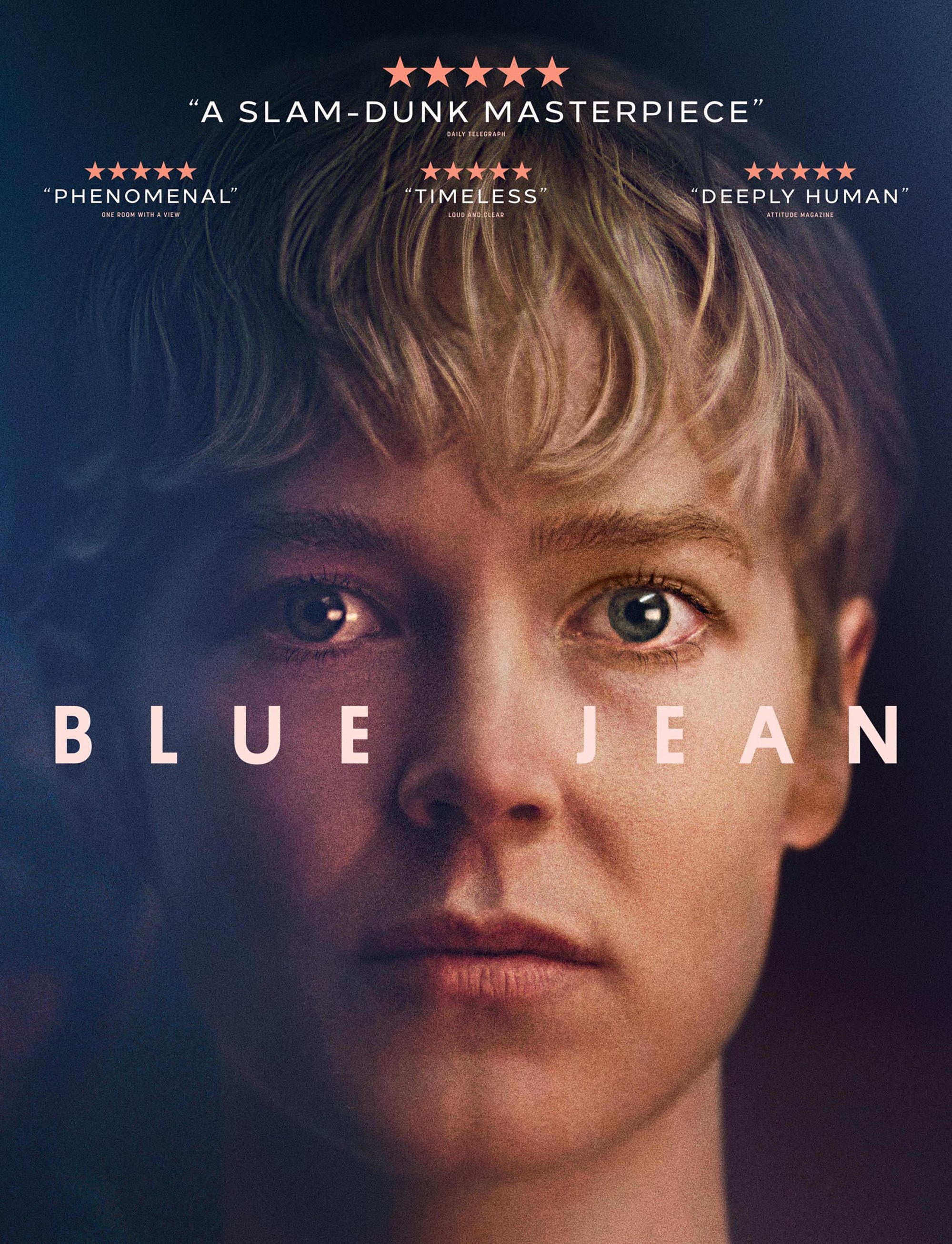
- Film
“Blue Jean” – Contemporary Relevance of This Period of Queer History
The British film Blue Jean premiered at the Venice Film Festival in September 2022, winning the People’s Choice Award; it was released in the US in June 2023.
First time writer-director Georgia Oakley (born on July 31, 1988) explores the inner conflict of Jean (Rosie McEwen), a young PE (Physical Education) teacher in Tyneside, Northern England, who hides her homosexuality when in her school environment and with her family, while hanging out at night in a different neighborhood with her butch girlfriend Viv (Kerrie Hayes) and their group of lesbian activists. “Baby Jean” faces a moral dilemma after denying her support to one of her students, 15-year-old Lois (Lucy Halliday), falsely accused of sexually attacking a team-mate, for fear of losing her job.
In an interview for the production notes, Oakley explained: “My motivation for telling Jean’s story stems from a personal understanding of internalized homophobia, as well as a desire to give voice to those forgotten teachers who battled stigma and defamation under Section 28.”
The historical context of this story is the institution of Section 28, in May 1988, by the Conservative government of Margaret Thatcher, a legislative designation which prohibited the promotion and the teaching of homosexuality by local authorities. This created conflicts for school officials who wanted to protect gay students from discrimination. British gay rights movements, the most well-known being Stonewall, founded in 1989, were formed to organize protests demanding the cancelation of this law, which was finally repealed by Scottish Parliament in June 2000, but not until 2003 in England and Wales.
The director is well aware of the contemporary relevance of this period of queer history: “The legacy of Section 28 is alive and well. It’s one example of horrific institutionalized homophobia that LGBTQ+ communities have to deal with on a day-to-day basis.”
Rosie McEwen, who was born in 1995, said in an interview for the production notes: “I was at school while Section 28 was in place, it wasn’t abolished in England until 2003, but I had no idea that these men and women were living these traumatic lives, continuously looking over their shoulders and never feeling like they could be themselves. Of course Jean was hiding who she was, trying to be someone different. Her relationship with Viv was one piece of pure happiness in her life, and sacred for her. What comes between them it’s not their fault. The society that they have been born into gets in the way and that forces them to fight.” She added: “It’s still really hard today, for a teenager and an adult, to come out and face continuous discrimination. In schools there’s teasing and bullying, it’s a tense environment to be in.” McEwen elaborated in Time Out magazine: “The ‘Don’t Say Gay’ bill in Florida is basically identical to Article 28. That’s making it illegal for kids to discuss sexual orientation in primary schools on the other side of the world. It’s exactly the same thing, so it’s still very prevalent.”
To contextualize this British film as it pertains to what has been happening in this country, we note that, according to data from the ACLU (American Civil Liberties Union data), as of this April, 417 bills targeting LGBTQ rights have been introduced in state legislatures across the United States in 2023, from banning access to gender-affirming care for transgender youth to regulating curriculum in public school. That number has more than doubled since 2022. And 60 out of 283 education-related bills are about “forced outings,” which would require teachers to alert parents when a student begins going by a different name or pronoun.

